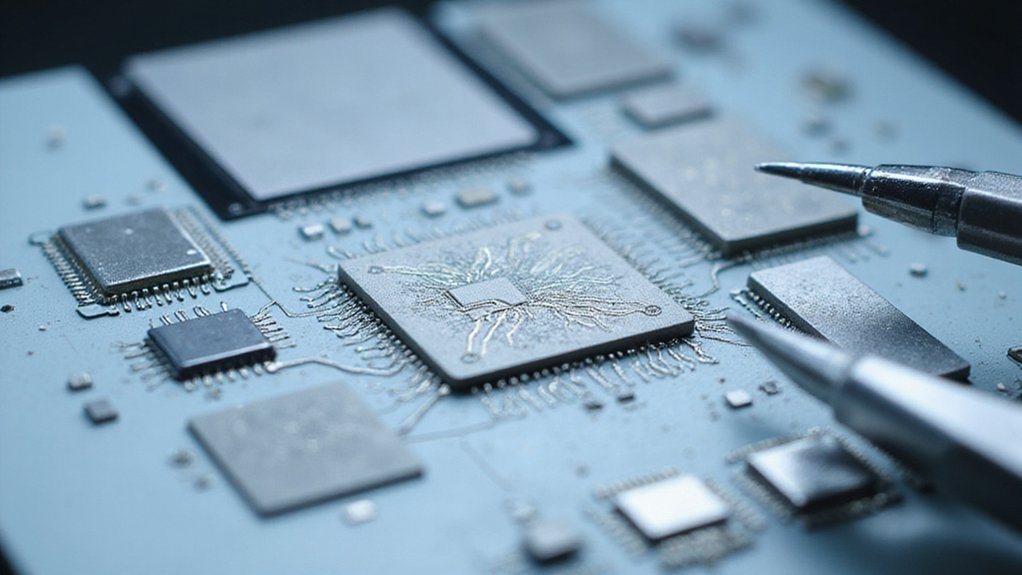The semiconductor wars have found an unlikely new battlefield in the world of cryptocurrency, where specialized chips designed solely to solve cryptographic puzzles now command a market approaching $5.13 billion in 2025—a figure that would make even traditional chipmakers pause to recalculate their addressable markets.
Block’s impending announcement promises to disrupt this landscape with mining chips that reportedly deliver 35% efficiency improvements over existing models, targeting the sweet spot where hash rate meets energy consumption in an industry where margins dance precariously with Bitcoin’s volatile pricing.
The timing couldn’t be more strategic. Bitcoin miners collectively earned $11.2 billion in 2025, representing a 7.1% year-over-year increase that has institutional investors eyeing mining infrastructure with renewed interest.
Block’s entry challenges the established triumvirate of Bitmain, MicroBT, and Canaan—companies that have enjoyed comfortable market dominance while the broader cryptocurrency mining equipment sector projects growth to $6.56 billion by 2029. This represents a modest 6.3% CAGR, though Bitcoin mining hardware specifically anticipates explosive expansion from $11.15 billion to $69.10 billion by 2034.
Block’s revolutionary approach addresses persistent industry pain points: energy efficiency concerns that have pushed 45% of operations toward renewable sources, and the relentless difficulty adjustments that render yesterday’s cutting-edge hardware tomorrow’s expensive paperweights. These mining operations rely on Proof of Work mechanisms that require miners to solve computationally intensive cryptographic puzzles to validate transactions and secure the network.
The company’s chips reportedly incorporate advanced semiconductor manufacturing techniques, leveraging North American fabrication capabilities that have become increasingly strategic as geopolitical tensions reshape global supply chains. Modern mining operations require sophisticated cooling systems and power management solutions, with specialized hardware like ASICs essential for maintaining competitive mining performance.
Remote hosting services currently command 43.2% market share, indicating miners increasingly prefer outsourcing hardware management complexities. Block’s chips could strengthen this trend by offering hosted providers superior economics through reduced power consumption and higher throughput.
North America’s 44.1% market dominance, bolstered by favorable electricity rates in hydroelectric-rich regions like Washington state, provides fertile ground for Block’s technology deployment. Modern ASIC miners now achieve 150 TH/s hash rates, representing a doubling of output compared to earlier generation models.
The broader implications extend beyond mining efficiency. As blockchain adoption proliferates across supply chain management and banking applications, demand for validation infrastructure intensifies.
Block’s chips arrive precisely when the industry requires next-generation solutions capable of maneuvering regulatory uncertainties, energy constraints, and the perpetual arms race between mining difficulty and technological innovation—a contest where incremental advantages translate directly into profitability.






